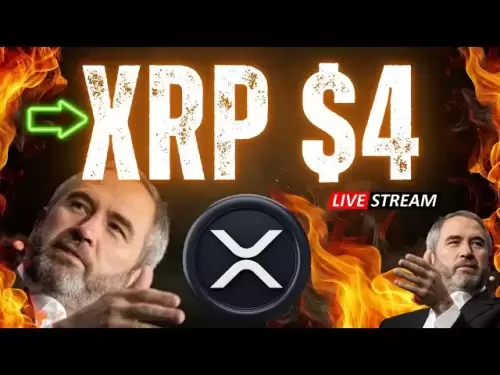-
 Bitcoin
Bitcoin $118300
-1.72% -
 Ethereum
Ethereum $3591
-0.69% -
 XRP
XRP $3.478
-3.53% -
 Tether USDt
Tether USDt $1.001
-0.01% -
 BNB
BNB $737.7
-0.54% -
 Solana
Solana $177.3
-2.40% -
 USDC
USDC $0.9999
-0.01% -
 Dogecoin
Dogecoin $0.2538
7.04% -
 TRON
TRON $0.3256
-0.85% -
 Cardano
Cardano $0.8332
-3.48% -
 Hyperliquid
Hyperliquid $44.80
-3.30% -
 Stellar
Stellar $0.4672
-6.09% -
 Sui
Sui $3.828
-5.98% -
 Chainlink
Chainlink $18.15
-3.41% -
 Hedera
Hedera $0.2655
-7.16% -
 Bitcoin Cash
Bitcoin Cash $517.5
-0.64% -
 Avalanche
Avalanche $23.89
-2.37% -
 Shiba Inu
Shiba Inu $0.00001519
-0.45% -
 UNUS SED LEO
UNUS SED LEO $8.973
0.13% -
 Toncoin
Toncoin $3.211
-2.54% -
 Litecoin
Litecoin $103.5
-3.58% -
 Polkadot
Polkadot $4.313
-3.90% -
 Uniswap
Uniswap $10.31
0.67% -
 Monero
Monero $325.4
-2.88% -
 Bitget Token
Bitget Token $5.049
3.51% -
 Ethena USDe
Ethena USDe $1.002
0.04% -
 Pepe
Pepe $0.00001346
-2.96% -
 Dai
Dai $0.9999
-0.02% -
 Aave
Aave $322.1
-2.93% -
 Bittensor
Bittensor $411.9
-4.70%
Is it safe to link my bank account to Coinbase?
Coinbase uses strong security like 2FA, encryption, and cold storage to protect linked bank accounts and user data.
Jul 09, 2025 at 03:29 pm
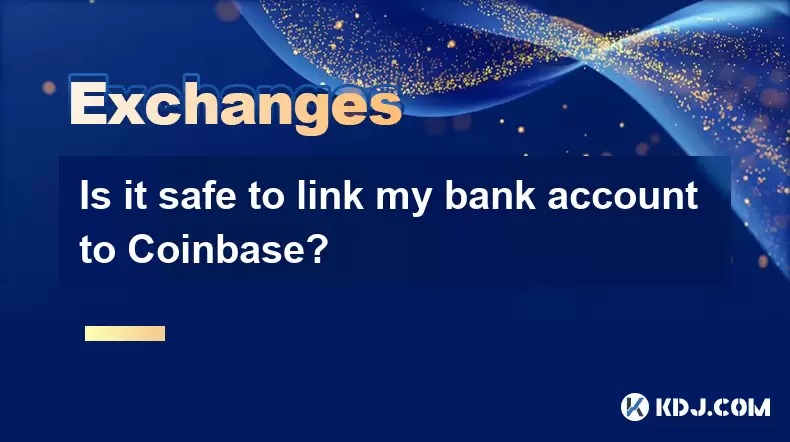
Understanding the Security Measures of Coinbase
Coinbase is one of the most popular cryptocurrency exchanges globally, known for its robust security protocols. When users consider linking their bank accounts to Coinbase, they often wonder about the safety of such an action. The platform employs multiple layers of security features, including two-factor authentication (2FA), encryption of data in transit and at rest, and cold storage for the majority of its digital assets. These measures are designed to protect user funds and personal information from unauthorized access.
One of the primary concerns when linking a bank account is the potential for identity theft or financial fraud. Coinbase addresses this by using industry-standard encryption technologies like SSL (Secure Socket Layer) to ensure that all communications between the user's browser and the server are secure. Additionally, the platform complies with regulatory standards such as Know Your Customer (KYC) and Anti-Money Laundering (AML) laws, which require verification of user identities before allowing full functionality on the platform.
How Bank Account Linking Works on Coinbase
Linking a bank account to Coinbase involves several steps, each designed to verify ownership and ensure the legitimacy of the transaction. Users can connect their bank accounts through either Automated Clearing House (ACH) transfers or wire transfers. ACH transfers are typically free but may take 1–5 business days to process, depending on the region and banking hours.
When initiating a bank link, Coinbase performs a micro-deposit verification process, where small amounts are deposited into the user’s account to confirm ownership. This step helps prevent fraudulent activities and ensures that only the rightful owner can access the linked account. During this phase, users must enter the exact deposit amounts within a specified time frame to complete verification.
It is crucial to note that Coinbase does not store bank login credentials on its servers. Instead, it uses third-party services like Plaid to securely handle the connection between the user’s bank and the exchange. These intermediaries act as bridges, ensuring that sensitive financial data remains protected without being exposed to Coinbase directly.
Privacy Policies and Data Protection
User privacy is a cornerstone of Coinbase’s operational philosophy. The platform has a comprehensive privacy policy that outlines how user data is collected, used, and protected. When linking a bank account, only necessary information such as account numbers and routing details are transmitted and stored in an encrypted format.
Coinbase adheres to strict data protection regulations, including GDPR compliance for European users and other regional laws applicable to different jurisdictions. The company also undergoes regular third-party audits to ensure that its security practices meet industry benchmarks. In the event of a data breach, Coinbase has a notification protocol in place to inform affected users promptly and take corrective actions.
Users should always review the terms of service and privacy policies before linking any financial accounts. Understanding what data is shared, how it is used, and who it might be shared with gives users greater control over their personal and financial information.
Risks Associated with Linking Bank Accounts
While Coinbase implements strong security measures, no system is entirely immune to risks. One of the main concerns when linking a bank account is unauthorized access due to phishing attacks or malware infections. If a user's device is compromised, attackers may attempt to gain access to their Coinbase account and initiate unauthorized transactions.
To mitigate these risks, users should adopt best practices such as enabling two-factor authentication, regularly updating passwords, and avoiding suspicious links or emails claiming to be from Coinbase. It's also advisable to monitor account activity frequently and set up transaction alerts to detect any unusual behavior immediately.
Another potential risk is the reversal of ACH transactions, which could occur if a user disputes a charge or if there's a technical error. While Coinbase has procedures in place to handle such situations, users should be aware of the bank’s dispute resolution timeline and maintain clear communication with both Coinbase support and their financial institution.
Alternatives to Direct Bank Transfers
For users who are hesitant about linking their bank accounts directly, Coinbase offers alternative funding methods that may provide additional layers of separation between traditional banking systems and cryptocurrency transactions. Options such as credit/debit card purchases or PayPal integration allow users to buy cryptocurrencies instantly without exposing their bank account details.
Using a prepaid debit card loaded with funds is another method some users prefer. This approach limits exposure since the card is not directly tied to a primary bank account. However, it’s important to note that these alternatives may come with higher fees compared to standard ACH transfers.
Some advanced users opt to use third-party wallet services in conjunction with Coinbase. By transferring funds to a separate wallet after purchasing on Coinbase, they reduce the amount of money held directly on the exchange, thereby minimizing risk in case of a security incident.
Frequently Asked Questions
Q: Does Coinbase ever ask for my bank password?
No, Coinbase never asks users for their bank passwords. All bank account connections are handled through secure third-party services like Plaid, and users do not need to share sensitive login credentials directly with Coinbase.
Q: Can I unlink my bank account from Coinbase at any time?
Yes, users can remove their bank accounts from Coinbase at any time through the payment methods section of their account settings. Once unlinked, future transactions cannot be made using that account unless reconnected.
Q: What happens if my bank account is hacked after linking it to Coinbase?
If your bank account is compromised, you should contact your bank immediately to report the issue and freeze the account. You should also log into your Coinbase account and disconnect the affected bank account to prevent further unauthorized access.
Q: Are there daily limits on bank transfers through Coinbase?
Yes, Coinbase imposes daily and weekly limits on bank transfers based on the user’s verification level and regional regulations. These limits help protect against large-scale fraud and unauthorized transactions.
Disclaimer:info@kdj.com
The information provided is not trading advice. kdj.com does not assume any responsibility for any investments made based on the information provided in this article. Cryptocurrencies are highly volatile and it is highly recommended that you invest with caution after thorough research!
If you believe that the content used on this website infringes your copyright, please contact us immediately (info@kdj.com) and we will delete it promptly.
- TRX vs. RTX: Will Remittix Overtake Tron as the Altcoin to Watch in 2025?
- 2025-07-19 17:30:12
- Bitcoin, Nexchain, and Presales: What's Hot in the Crypto Space?
- 2025-07-19 16:30:12
- Presales, ICOs, and 100x Returns: Navigating the Crypto Landscape in 2025
- 2025-07-19 16:30:12
- Binance, Yooldo Games, and Tokens: Navigating the GameFi Landscape
- 2025-07-19 16:50:12
- Floki Inu, Meme Frenzy, and the Rise of AI Platforms: A New Era?
- 2025-07-19 16:50:12
- Dogecoin, Trader Interest, and the 2025 Meme Coin Landscape
- 2025-07-19 17:30:12
Related knowledge
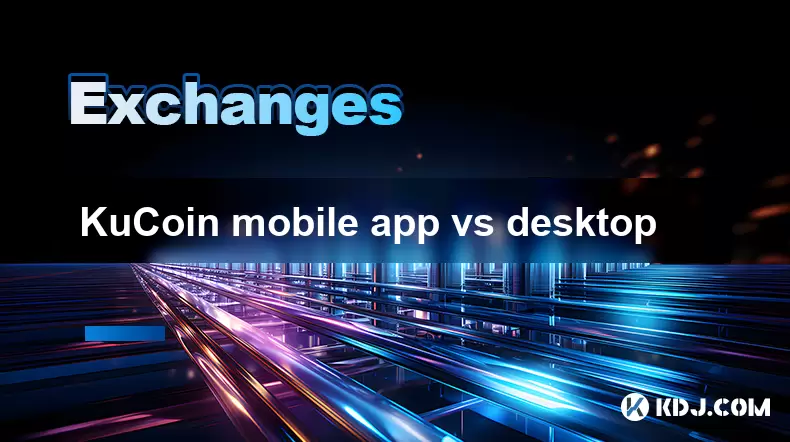
KuCoin mobile app vs desktop
Jul 19,2025 at 08:35am
Overview of KuCoin Mobile App and Desktop PlatformThe KuCoin ecosystem offers both a mobile app and a desktop platform, each designed to cater to diff...
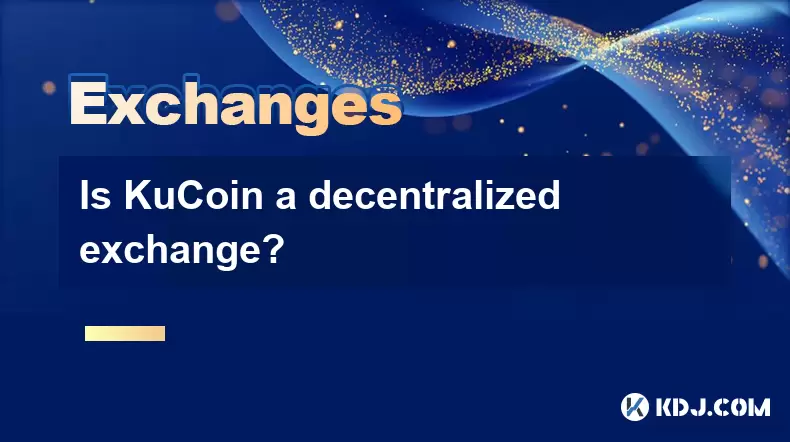
Is KuCoin a decentralized exchange?
Jul 18,2025 at 03:15pm
Understanding Decentralized Exchanges (DEXs)To determine whether KuCoin is a decentralized exchange, it's essential to first understand what defines a...
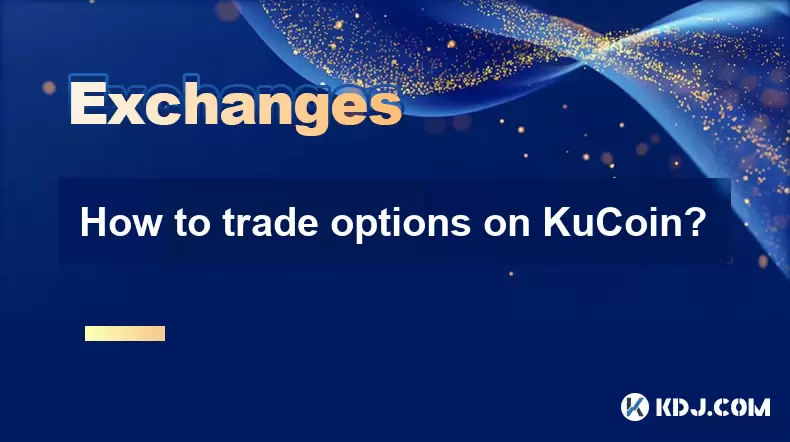
How to trade options on KuCoin?
Jul 19,2025 at 03:42am
Understanding Options Trading on KuCoinOptions trading on KuCoin allows users to speculate on the future price movements of cryptocurrencies without o...
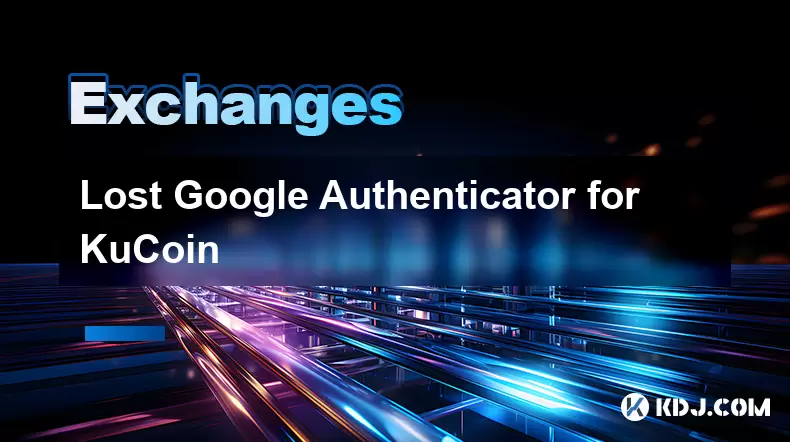
Lost Google Authenticator for KuCoin
Jul 19,2025 at 02:35am
Understanding the Importance of Google Authenticator in KuCoin SecurityGoogle Authenticator is a critical tool used by KuCoin users to enable two-fact...
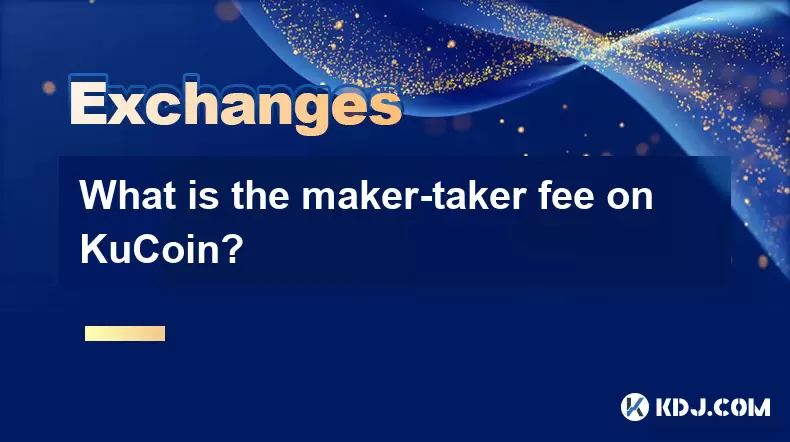
What is the maker-taker fee on KuCoin?
Jul 18,2025 at 12:42pm
Understanding the Maker-Taker Fee ModelThe maker-taker fee model is a pricing structure used by many cryptocurrency exchanges, including KuCoin, to de...
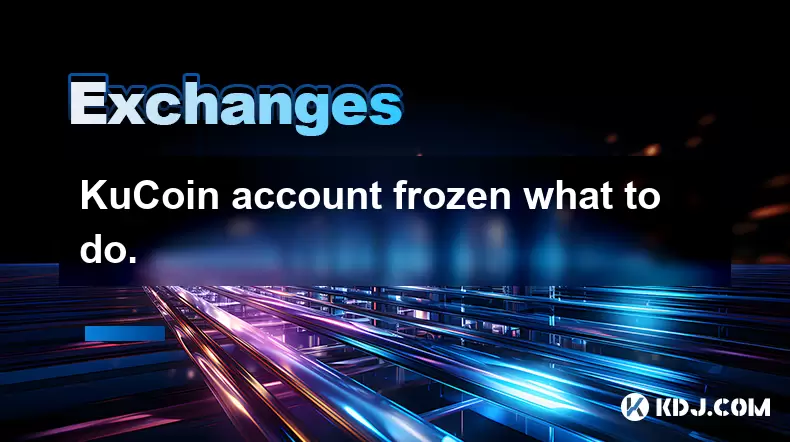
KuCoin account frozen what to do.
Jul 19,2025 at 04:35am
Understanding Why Your KuCoin Account Was FrozenIf you've discovered that your KuCoin account is frozen, the first step is to understand why this has ...

KuCoin mobile app vs desktop
Jul 19,2025 at 08:35am
Overview of KuCoin Mobile App and Desktop PlatformThe KuCoin ecosystem offers both a mobile app and a desktop platform, each designed to cater to diff...

Is KuCoin a decentralized exchange?
Jul 18,2025 at 03:15pm
Understanding Decentralized Exchanges (DEXs)To determine whether KuCoin is a decentralized exchange, it's essential to first understand what defines a...

How to trade options on KuCoin?
Jul 19,2025 at 03:42am
Understanding Options Trading on KuCoinOptions trading on KuCoin allows users to speculate on the future price movements of cryptocurrencies without o...

Lost Google Authenticator for KuCoin
Jul 19,2025 at 02:35am
Understanding the Importance of Google Authenticator in KuCoin SecurityGoogle Authenticator is a critical tool used by KuCoin users to enable two-fact...

What is the maker-taker fee on KuCoin?
Jul 18,2025 at 12:42pm
Understanding the Maker-Taker Fee ModelThe maker-taker fee model is a pricing structure used by many cryptocurrency exchanges, including KuCoin, to de...

KuCoin account frozen what to do.
Jul 19,2025 at 04:35am
Understanding Why Your KuCoin Account Was FrozenIf you've discovered that your KuCoin account is frozen, the first step is to understand why this has ...
See all articles

























